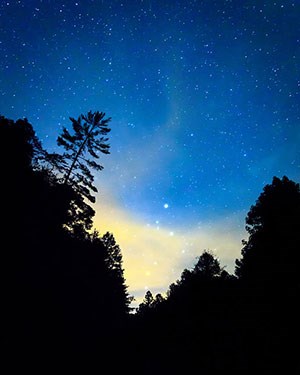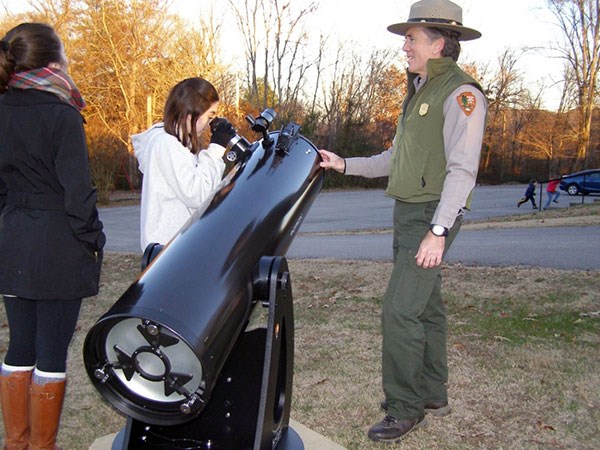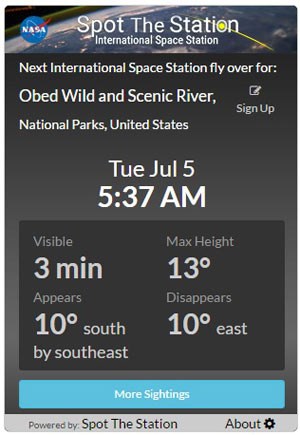
Michael Foster One estimate indicates that about 30 percent of all light generated in the United States is wasted; costing billions of dollars. Outdoor lights provide many benefits but improved consideration of night sky concerns in their design and application would be highly beneficial in reducing light pollution and the associated production of unneeded energy. In addition to interfering with our ability to see celestial bodies and astronomical events, light pollution has a detrimental environmental impact. Some bird species depend on stars for navigation. Light pollution interferes with their travels. Some believe that declines in moth populations are linked to attraction to lights and subsequent death. The National Park Service is concerned about our contribution to light pollution and has set policy that seeks to reduce or eliminate the adverse impacts of light pollution. At Obed, park staff members are working to reduce in-park light pollution. 
Astronomy Programs The National Park Service is concerned about our contribution to light pollution and has set policy that seeks to reduce or eliminate the adverse impacts of light pollution. At Obed WSR, staff members are working to reduce light pollution. To learn more about the efforts to "save the night" click on the links below: National Park Service's Night Sky Program Losing the Dark- Starry skies are a vanishing treasure because light pollution is washing away our view of the cosmos. It not only threatens astronomy, but it also disrupts wildlife and negatively affects human health. Hard to believe? See for yourself: (6:25, Youtube). Change Your Lights, Save the Nights! Arguably, one of the easiest ways to save the night sky is by changing your light bulbs. 
|
Last updated: December 11, 2017
